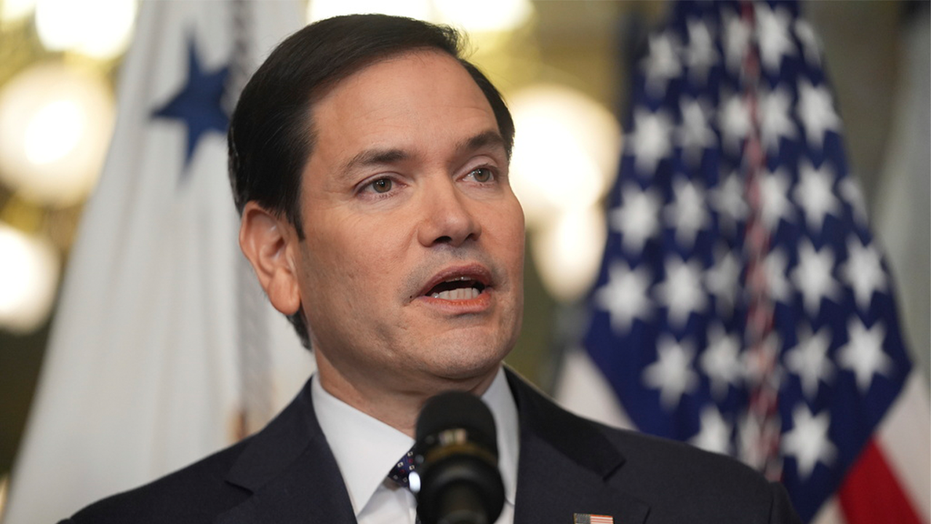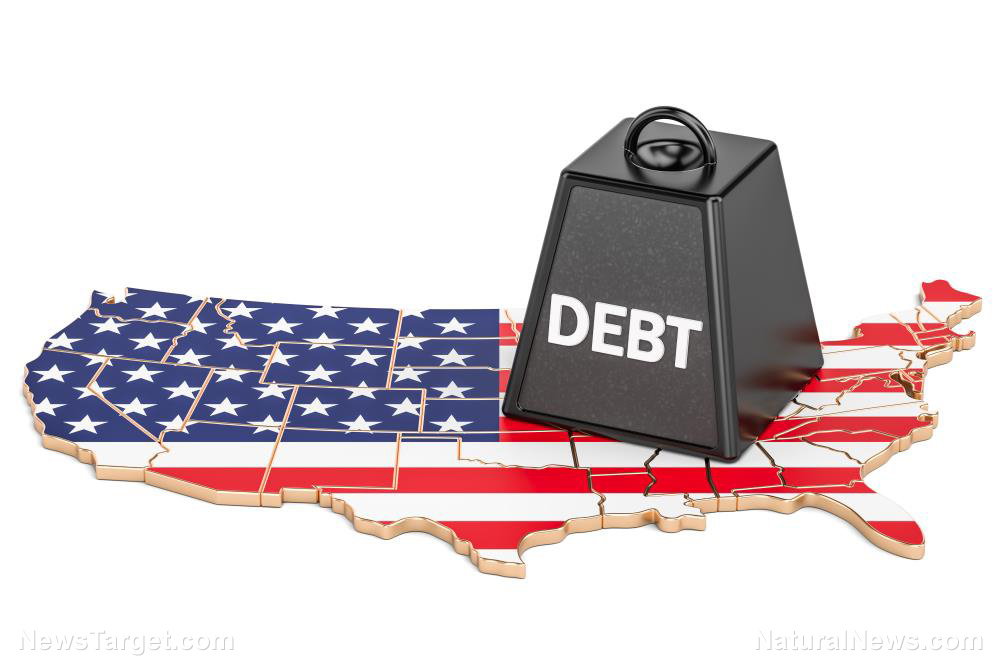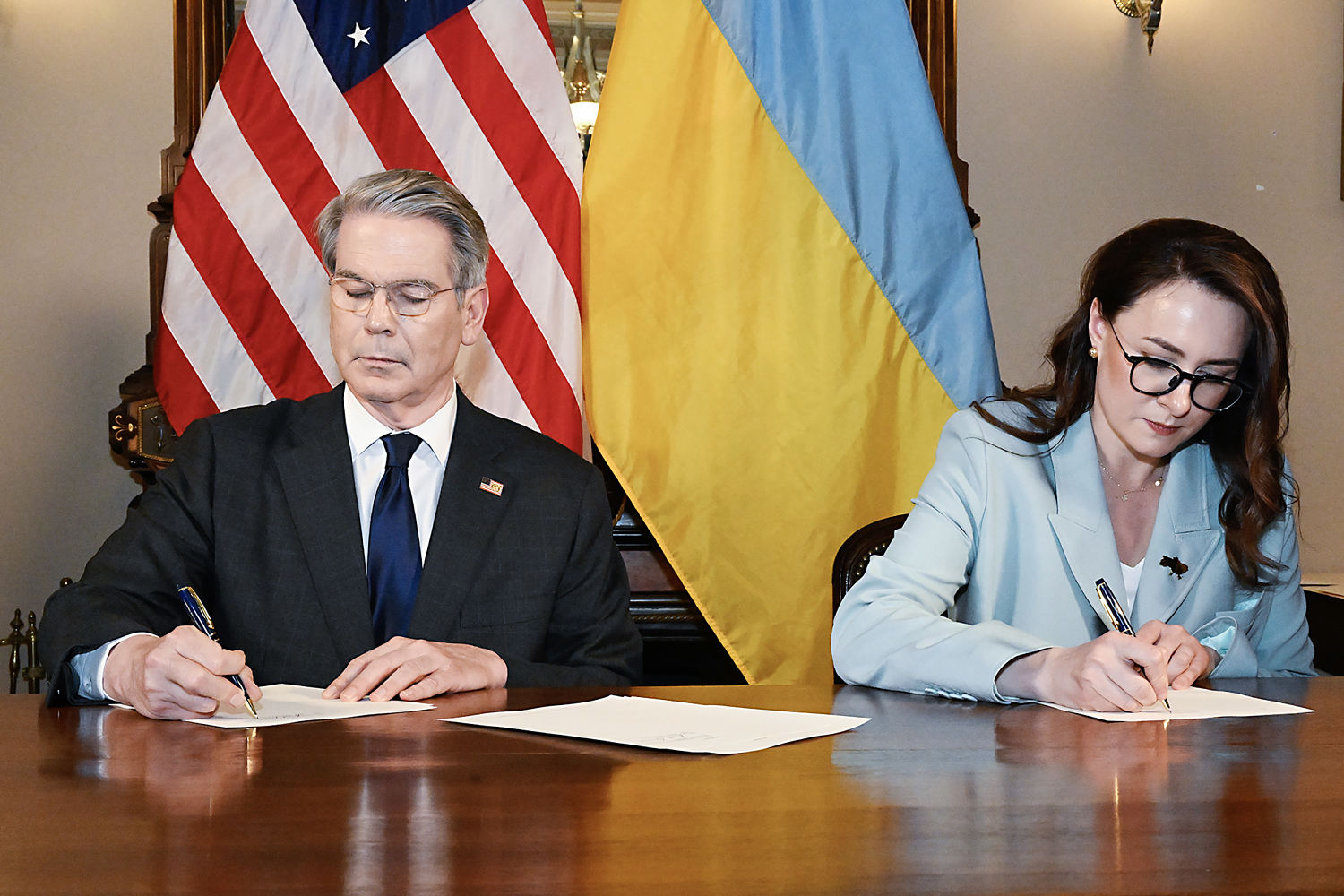America loses no matter how many tariff deals Trump cuts
Americans should understand that becoming an international pariah has costs, even if the tariffs disappear and markets magically recover.

Trump officials have been trying to divert attention from the precipitous drop in the stock market caused by Trump’s tariffs. From the president on down, they have been telling people to just take your medicine and that, long-term, the tariffs will yield important benefits for the United States.
Of course, this is very easy for billionaires like Trump, Treasury Secretary Scott Bessent (who called the financial turmoil just an “adjustment process”) and other uber-wealthy Trump officials to say. But it's not so comforting to ordinary Americans seeing their life savings evaporate.
It is not unlike Commerce Secretary Howard Lutnick’s comment that Americans wouldn’t mind if they missed a Social Security payment, because his mother-in-law, whose son-in-law’s worth is estimated at a minimum of $2 billion, wouldn’t mind.
Now, Trump has changed the message. The new talking point is that dozens of nations are seeking to negotiate, and he will quickly cut deals for better, fairer trade. Trump is trumpeting that Japan, for example, has offered to come to the table.
There are many problems with this new theory. For one thing, even if successful — and that is a big if — it undermines the loudly shouted claim that the tariffs will raise $6 trillion over the next 10 years, replacing U.S. taxes; no tariffs, no tariff revenue.
It is also inconsistent with the idea that America will build new plants, creating American jobs, an idea that Lutnick has already largely discredited.
Nor does the new claim take into account other nations’ responses. China has already announced retaliation, and the European Union may not be far behind.
But let us, for a few moments, suspend reality and pretend that Trump is right.
Let’s assume that he negotiates great new trade agreements with all of our trading partners, and the stock market decimation is short-lived. And let us ignore the significant inflationary impact and loss of jobs from even a short period of high tariffs.
Even with Trump’s most optimistic negotiation assumptions, this misdirected tariff stunt, attacks on our international partners and ignoring our international agreements will impose enormous long-term costs for Americans.
This could be the topic for many essays. Hedge fund manager Bill Ackman, a big backer of candidate Trump in 2024, explained that Trump and his administration are “in the process of destroying confidence in our country as a trading partner, as a place to do business, and as a market to invest capital.”
China is suspending purchases of Boeing aircraft, a U.S. trade leader. The long-term cost to business and investment could be enormous. Damage is also being done to important national security alliances and threatening billions of dollars in possible U.S. weapons sales.
One might add possible corruption resulting from tariff policies controlled entirely by Trump, a man who, with his family, has a plethora of overseas financial interests. And there have already been serious allegations of possible insider trading by a key Trump ally — a crime that undermines confidence in markets while enriching grifters.
For now, let us consider one other example of the long-term economic cost of Trump’s tariff tantrum: the tourism industry.
While Americans have watched with a mix of concern and bemusement as Canadians, outraged by Trump’s talk of making Canada the 51st state, cancel trips to Disney World during the seemingly endless Canadian winter, the impact should be more carefully considered.
In 2024, travelers in the United States spent $1.3 trillion, of which inbound international travelers spent $181 billion. At the end of 2024, international tourism to the United States was projected to increase by another 9 percent in 2025.
Trump’s tariffs have eviscerated that expectation. By late March, a drop of 5 percent was expected, but Adam Sacks, president of Tourism Economics, said that “it could be well worse than that, as things continue to unfold.” An estimate from earlier this month puts annual losses at $90 billion.
Canada and Mexico together accounted for 36 million U.S. tourists in 2024, approximately half of the total. But in February, the number of Canadians returning by car from the United States was down 23 percent year-over-year. Air travel bookings from Canada have dropped 70 percent in the most recent period, a harbinger of damage that may yet be to come.
The losses in U.S. jobs will be immense.
The U.S. Travel Association predicted that even a 10 percent reduction in Canadian travel to the United States would cost $2.1 billion and possibly 140,000 jobs, and the news from Canada suggests that this prediction is grossly conservative. One analysis suggested total U.S. losses of $64 billion, and again, that late March projection might be conservative.
Of course, the drop in tourism is being driven not only by Trump’s tariff bludgeon but also by attacks on long-term allies and outrageous actions by Immigration and Customs Enforcement officers determined to demonize immigrants, which have swept in some tourists. Foreign nations are issuing warnings about the possible danger of traveling to the United States.
Even if the tariff war ends quickly, the impact on tourism from rattled potential visitors is likely to be long-term.
Sadly, too many Americans have ignored the cost of Trump’s policies until they impact them personally. Many who work in the tourism industry may be feeling that impact soon. Our nation could feel the impact for years.
This is, in no way, to deny the need to take serious action against foreign unfair trade. As an international trade lawyer, I was a leading advocate of taking aggressive action against unfair trade for many years, and there are ways to do so without undermining our international agreements and allies.
But Trump’s tariffs were not targeted at unfair trade, and he has ignored other mechanisms that could address it.
Americans should understand that becoming an international pariah has costs, even if the tariffs disappear and markets magically recover. Efforts by Senate Republicans to reassert Congress’s constitutional authority over tariffs and stop this madness should be broadly supported.
John A. Ragosta, Ph.D. practiced international trade law for over 20 years before earning his doctorate in early American legal and constitutional history; his most recent book is "For the People, For the Country: Patrick Henry’s Final Political Battle."





















_Brian_Jackson_Alamy.jpg?width=1280&auto=webp&quality=80&disable=upscale#)























































